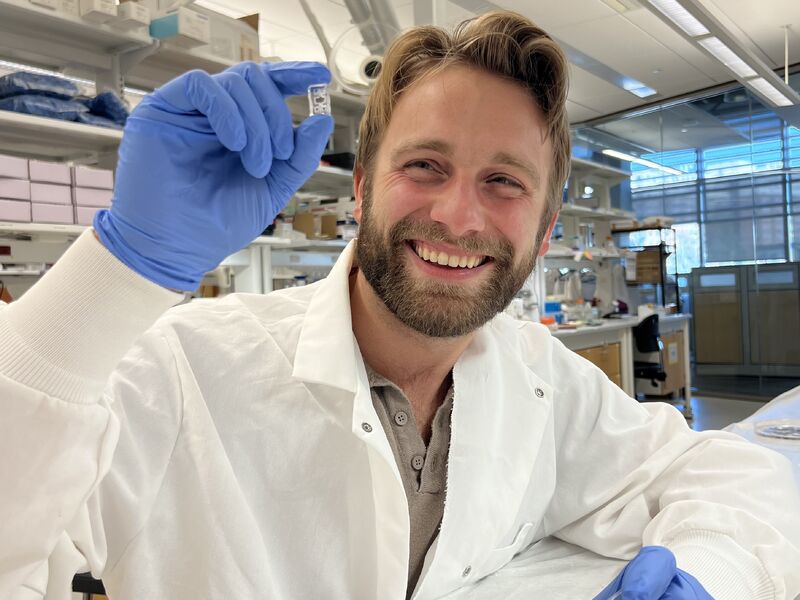Ph.D. Student Ian Smith Receives National Grant for Tumor-on-a-Chip Research
Ian Smith, a fifth-year Ph.D. candidate at the Fischell Department of Bioengineering (BIOE), recently received a fellowship from the International Foundation for Ethical Research (IFER) and National Anti-Vivisection Society (NAVS) to fund his research creating models that replace the need for animal experimentation. The grant supports his innovative work on a “tumor-on-a-chip” model—a device designed to replicate the structural, cellular, and signaling aspects of human tumors. Two months ago, Smith’s device received a provisional patent. He is now working to ship the device to collaborators to be utilized in their research, with an aim to improve the development of therapeutic treatments while reducing reliance on animal models. “It is an incredible honor to receive this fellowship and to have my research recognized amongst the high caliber of work that IFER supports.” Smith says. “The funding provides me with the financial freedom to push my device forward towards a viable means of studying cancer outside of the body. I also want to share this honor with my peers, as I likely would not have received the fellowship if it weren’t for their support.” As a Graduate Assistant in BIOE Associate Professor Kimberly Stroka’s Cell and Microenvironment Engineering Lab, Smith focuses on studying how tumors interact with their surrounding environment to become more aggressive and spread. “It is nearly impossible with current toolsets to accurately study how cancer cells spread away from the tumor in animal models.” Smith says. “My work with NAVS and IFER has sought to develop this model as a viable replacement for studying the progression of cancer in animals.” Through leaps and bounds of over 150 years of the effective study of cancer and how we can use that understanding to drive treatment options, cancer still remains the second leading cause of death in America. Smith’s journey into cancer research was deeply personal. After his father’s diagnosis with stage 4 pancreatic cancer, Smith was drawn to the development of treatments in the field. “One of the primary reasons that we haven’t developed effective treatments is the translatability of the results we find.” Smith explains. “Of the clinical trials that were originally successful in mice, only around 10% were viable treatments in humans.” With development of the device, researchers are able to observe the interactions at play between cancer cells and their surrounding environment in real time. This offers a more precise and ethical alternative to animal testing, allowing a more effective study of complex interactions behind the progression of cancer. “As an engineer, I loved the trial-and-error process, tweaking small details until the device took shape. Even now, I’m finding ways to improve it and brainstorming solutions to new challenges.” Looking ahead, Smith plans to collaborate with researchers at the National Institutes of Health (NIH) to integrate patient-derived samples into his device, making it applicable in clinical settings. “If you’re interested in research, choose something you’re passionate about—something that excites you even when it’s tough. Having the passion to research something will make it much easier to keep working on it when things become difficult."
Related Articles: January 6, 2025 Prev Next |


